I am still away, visiting friends in the south west. When I started this Substack I regularly included pieces expanded from my ongoing practice of writing to, and thinking with, friends, which is, apart from discussions at the table with food and wine, my favourite mode of meaning-making. It’s time for another recent instalment culled from my trusty ancient Hotmail account, that tireless μεταφορά (removals, transporter, metaphor…) machine.
I have removed anything personal to my correspondent, my friend
, added links and tidied the grammar somewhat, but as usual, I feel it is better left in its original, rather rambling, epistolary shape. Sometimes I feel like an eccentric gardener in the feral edges of the thought garden others have generously cultivated in the world. So here's me bringing you some wild fruit from the margins. Compost it or make jam as you see fit. It’s that season, after all.1The Oxford Lacuna
Duality
The 'yin / yang' symbol (the Taiji, or 'Great Polarity') is the symbol of my path, and what I have spent 25 years practising and thinking about. For me, duality isn't just one thing or the other, it's often one thing turning into the other, thus, the movement of a waveform, represented as if from above, say. Westerners / Moderns mostly conceive duality as strictly this or that, rather than this transforming into that, or this and a tiny amount of that, or this being identical to that under certain circumstances, etc.2 All of these are forms of duality / polarity. And of course, the whole is made up of all these dualities. And the whole is the whole point. It is exhausting for them, as people are always reaching the end of things, have no opportunity to move gradually between things or states, and so suffer tiny, medium, and huge shocks, all the time! The 'yin / yang' for that would be two halves of a circle, one white, one black, and no dots of the opposite at all, like this.
Hmm, kind like our contemporary politics, culture and discourse...
Paradox
Anyway, most of Shakespeare, Keats' doctrine of negative capability (about Shakespeare), and much of what the Stoics wrote, shows that an integrated, more subtle, transformation and paradox-based way of thinking is perfectly integral to our Western culture, and is not just some import from the far east.
So, the falcon diving and the small bird eaten outside your window while you write to me, as you know more than most, are provisional parts of a unique expression of the whole. (As is the worm the small bird just ate, the elevation afforded to the raptor by the tower, and as are you, seeing it all, as am I, in the telling).
Lacuna
I know so many men who went to Oxford University, all writers. But here's a thing: Oxford3 removed a part of all the men I know who went there and stashed it in a secret vault to which they will almost never get access again.4 I watch these people walking around with a vital thing missing, and they go everywhere looking for it. The place they go the most is into books and writing, or in the case of one, writing and unassailable comedy. Very occasionally they go looking for it in a woman, 'The Muse'. I have experienced this first hand a couple of times. It took me a while to notice when they were unknowingly attempting to get a vital thing out of me and transplant it into themselves. Don't worry, I still have all my parts.
Perhaps the hidden, occult method by which 'Oxford' perpetuates the production of the intellectual elite, the creation of innovative ideas and the continuation of the 'striving mind' that does this, is by taking away the one thing that would give them peace: a peace that would mean they could, if they chose, live lives without the need to dissect everything, know everything, or lay bare the working of everything. I am not saying wanting to do these things is wrong or evil. But it is as
has written, only one half of an initiation. Dougald seems to have found his own way to heal the harm done to him, by making sure his insights and journey are of benefit to many beings, and are integrated into work done in the world with his partner and so many others. Elsewhere, I see many wounds but not healed scars, movements outwards but no return to integrate into the whole of society for the good of all the members, (yes, even our annoying uncle or scowling, overworked neighbour.) Especially them, perhaps. Some people cover the wound with a genuinely healing balm of religion, which means you don't necessarily have to go get your own specific missing bit back, as Christ will give you his peace. It is also possible to use the ease given by a religion or spiritual path to have enough energy to go get your own lost part back, and still have faith. This happens via the dark night of the soul, and is its own excellent healing praxis. Others use the plaster of always being right, but this means there is constantly an itch underneath you can't get to. While you stay always right, you can't put your part back in at all, in fact, you would not really admit anything was missing.I see minds on stalks hitting each other with word clubs.
I expect it's scary and exhausting.
I think maybe The British Empire stemmed from it. So everybody else had to experience the same fear, dislocation and exhaustion, and so that the clever gentlemen could feed the infernal machine with other people's parts. Misery loves company.
Anyway, these are just rather gothic images of a thing I have been feeling for about 10 years. I could be barking up the wrong clock tower, but my study sample gets bigger by the year, and all conform to the 'missing part hypothesis', despite almost no other personality similarities. However, my methodology is hardly scientific, and beyond writing to you, not peer-reviewed.5
Un-named
I do not yet have a name for the missing part6, but I do know the shape of it [see above]. And I don't think they are all hidden in a vault at the Bodleian or anything, (well perhaps only metaphorically). My current feeling is the missing parts are all a sacrifice made to, or fuel burned to drive, the 'knowledge-production-machine' (my mash up of Iain McGilchrist’s mode of the left hemisphere and Deleuze and Guattarri's Desire Production Machine). The machine is no longer attached securely to the culture, where it and the knowledge it produces would be correctly embedded within the web of living-culture-making and meaning production, for the good of all. There, it would have its organic part and renewable energy source; the good ideas of humans who are part of a wider living culture. Instead, the men (I say men but there are certainly also women, but I have not met them in my social sphere), once relieved of this secret part, forget that they are holons within a greater whole, (just as the machine is no longer what it was meant to be, a supremely marvellous tool for the good of all.)
So, their wonderful insights, propelled onward by this painful vacuity in their organisms, which each successive insight never fills, are not aligned with each other as would be in a true culture, but set against one another, ideas always in competition, never integrated. And shorn of the monastic, or other overarching integrative traditions of an extant culture, (and in universities that were once themselves only holons within a much greater whole of meaning-making, in this case, Christendom), these lack-filled-thought-bombs sit in a marketplace for people to pick up, trade or use. Often, they blow up when handled, spreading unstoppable clouds of cold void7, and the users feel the hollowness that the Oxford involuntary-initiates feel, so the wider culture starts to chill, fragment, and then people start hitting each other with word clubs.
This is also how the culture war escaped the lab of universities and ended up infecting the whole world. The C-19 pandemic is an almost perfect analogy for the idea pandemic that is making people just as chronically ill. Ordinary people are correct to ask, 'Why were they experimenting with that in there? It's clearly dangerous, bad for health and could be weaponised!' No shit, Sherlock.
Untethered
Ah, I have meandered Lovecraftian, apologies. Anyway, these thoughts are from someone who only had to write two essays in 6 years at Art college. (I also think I was not the right kind of clever for Oxbridge, being constitutionally made up of at least 3/4 digression). But, I am actually pretty sure there is a way to reclaim the lost part that these institutions stole, and prevent them harvesting more of these subtle organs. First it requires deducing what they used as an anaesthetic so they could do the operation. I think that is possibly partly the euphoric high my friends describe from great crits and discussions, the feeling that you are part of a line of very bright young things who have all graced these rooms. (It's not the tutors deliberately doing the part-removal by the way, I am not accusing anyone of deliberate harm, it's all unconscious...) I have felt this intellectual high too, it is real and addictive! I feel it now writing to you, uh-oh…
Also, some of the idea-productions of the people are tremendous, and do great good in the world. There's just this weird untethered 'monad' feeling about it.8 Then we need to say what the missing function of the stolen organs is, so that we can look in the right places for it. It's not as simple as saying 'empathy' or 'ability to love others', as the people I am thinking of often have this in abundance. It is something that the lack of it seems not at first a pain, but almost an enjoyable ache, makes them feel set apart, special, able to solve and explain all things, and that if they did, that would be a good thing.9 And it is not just the famous 'God-shaped hole', as those who have found God often still have the hole. I think perhaps I am sleuthing this because I truly sympathise, both in suffering occasional grandiosity, and in knowing what it feels like to have something vital missing for decades.
My overarching image is just this floating bulbous shape on a long spindly stalk: as the shape of the thing this loss turns your energy into.
Like a shrunken head in the Pitt-Rivers museum.
Blimey. Two cups of Yorkshire tea and I am avoiding all my admin. Perhaps there's something in there for you, perhaps just a sigh at the madwoman. I can't help looking at the world like I look at dreams. It's how I ever avoid getting caught out. Egregores and patterns are oracular, maybe your falcon wasn’t for you today, but it was for me, as a kestrel was for me yesterday on the cliff top here, diving down to fill its belly with the lizards on the cliff.
Thankyou for receiving my ramblings. I think that I will think on these more, but this is the first time I have shared this outlandish 'Oxford lacuna'10 hypothesis with anyone. There is definitely something in it.
This week’s good thing: Going to a place with no phone signal and no mains electricity. I recommend it. Things look very different through holes between rocks.
This week is properly uncivil and savant. All the ink drawings were made immediately after writing this, using iron sumac ink which I made last year from fallen leaves and cheap iron supplement tablets, plus water and gum Arabic. The separate images were taken when wet, as I was in a hurry to get down the beach. The final image of all three circles was from 5 minutes later, showing how iron-tannin inks darken with oxidation as they dry. They’ll continue to get darker while I am staring at the horizon this weekend. I like the fact that drawings in my sketchbook have their own life, and change how they look, even when I am away.
None of these are as the same as post-modernism's this and that are equivalent.
… and Cambridge, St Andrews, possibly the Ivy League institutions in USA, the Sorbonne in France, also probably Goldsmiths in London, perhaps… I am saying ‘Oxford’ as a shorthand, here.
It is of course possible that these places also attract people who already have this quality, from their own families or conditioning…
I could be right about all this, but I could also be projecting, fantasising, foolish, partially mistaken, a combination of these, or just plain wrong. This doesn’t prevent an idea or method from being a useful tool for thinking about something.
It is real, like when a sense of humour or a sense of proportion are notably missing in someone.
This void is not Wuji, which is a generative, pregnant void, the ‘mother of all things’.
Tyson Yunkaporta writes brilliantly about knowledge needing to be embedded in specific place, with a web of people and for the greater benefit. I don’t have my copy of Sand Talk to hand as I have lent it to a friend, but you can listen to some good podcasts with him and read synopses on the web. Or better still get his book.
Rather than the inadvertent curse it is, to want to be the only one with the right answer. It’s literally the Western curse.
Lacuna came to me as I remembered the plot of the great film Eternal Sunshine of the Spotless Mind, where people had their memories deliberately removed by Lacuna Inc.






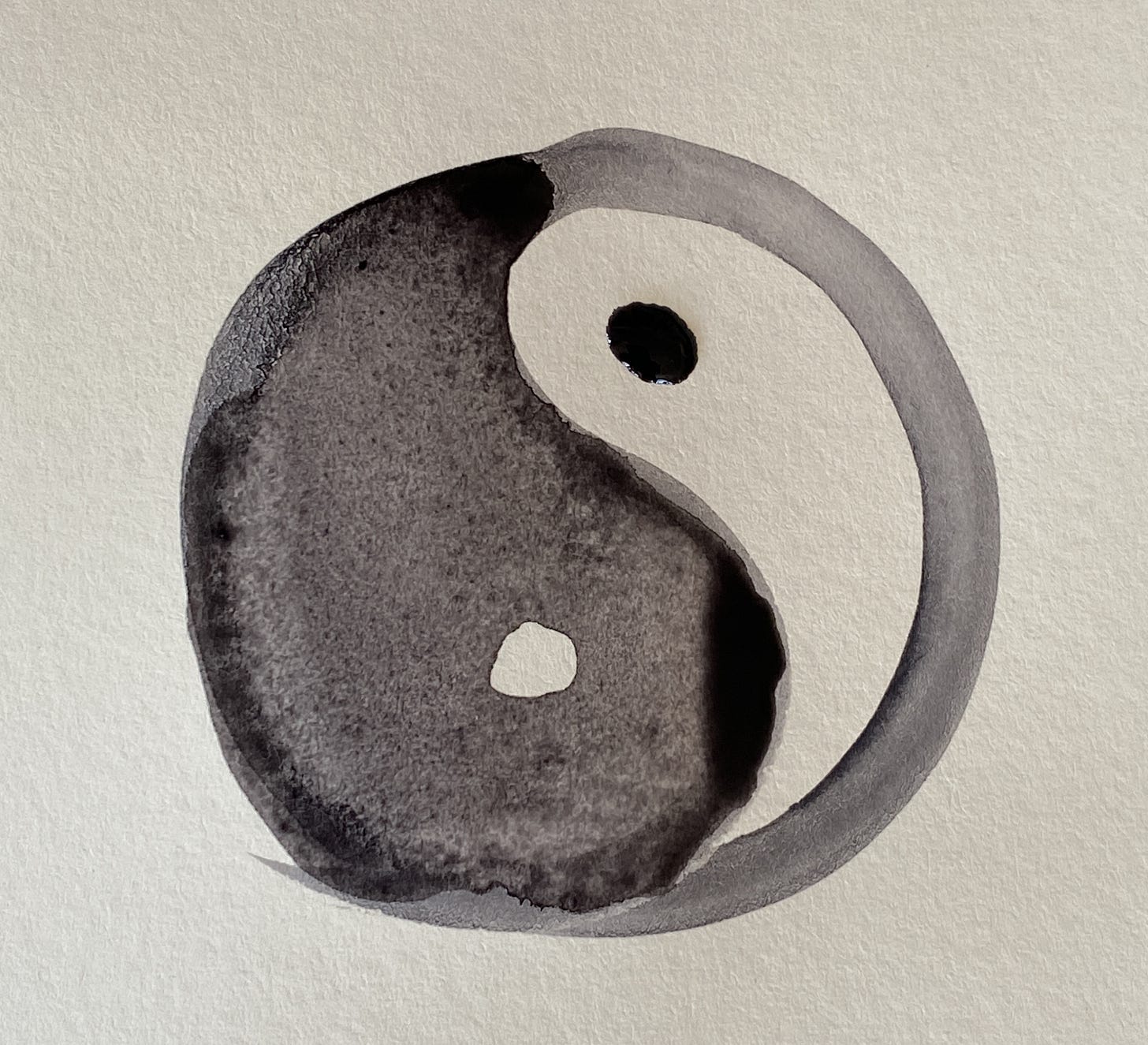
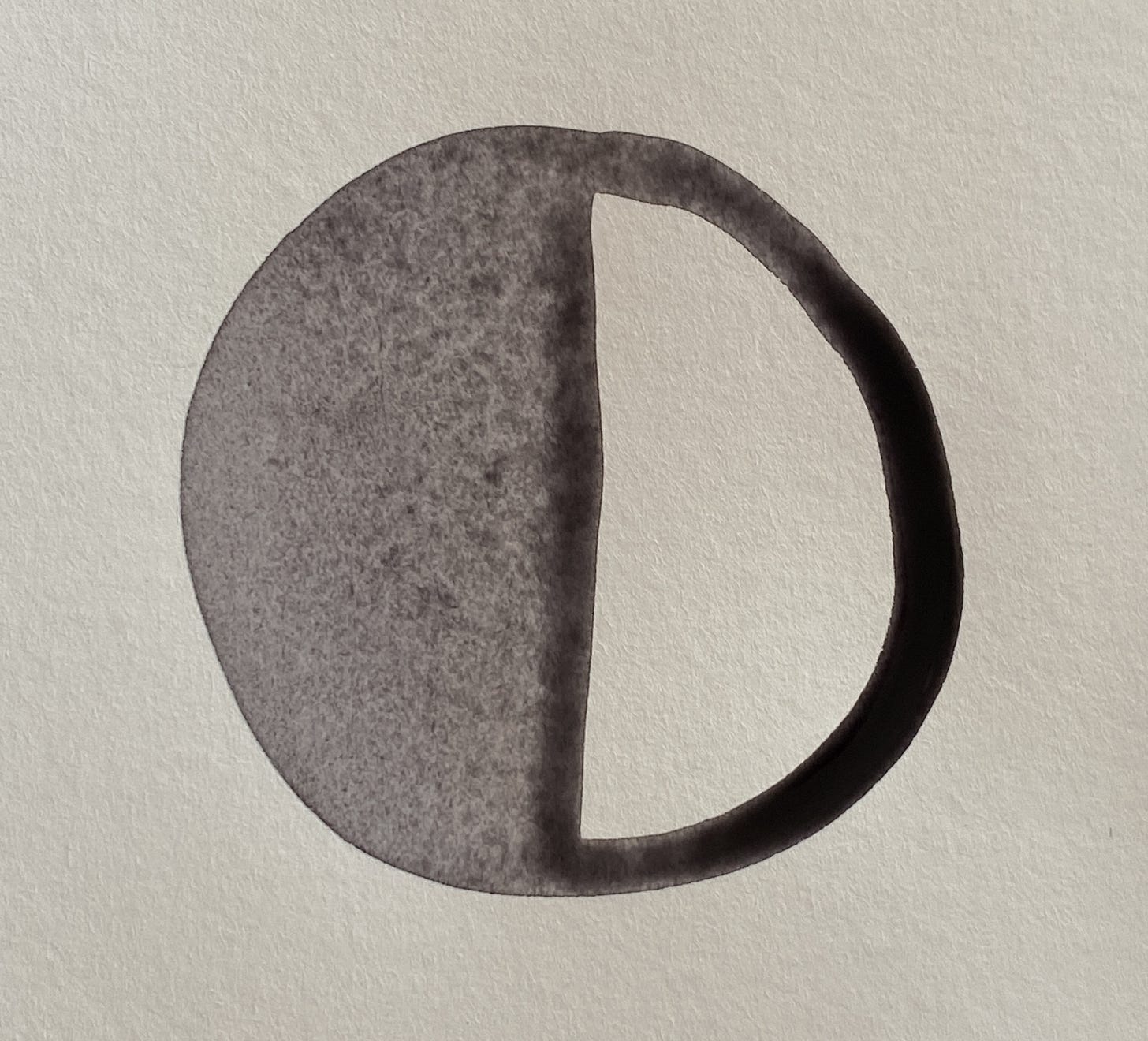

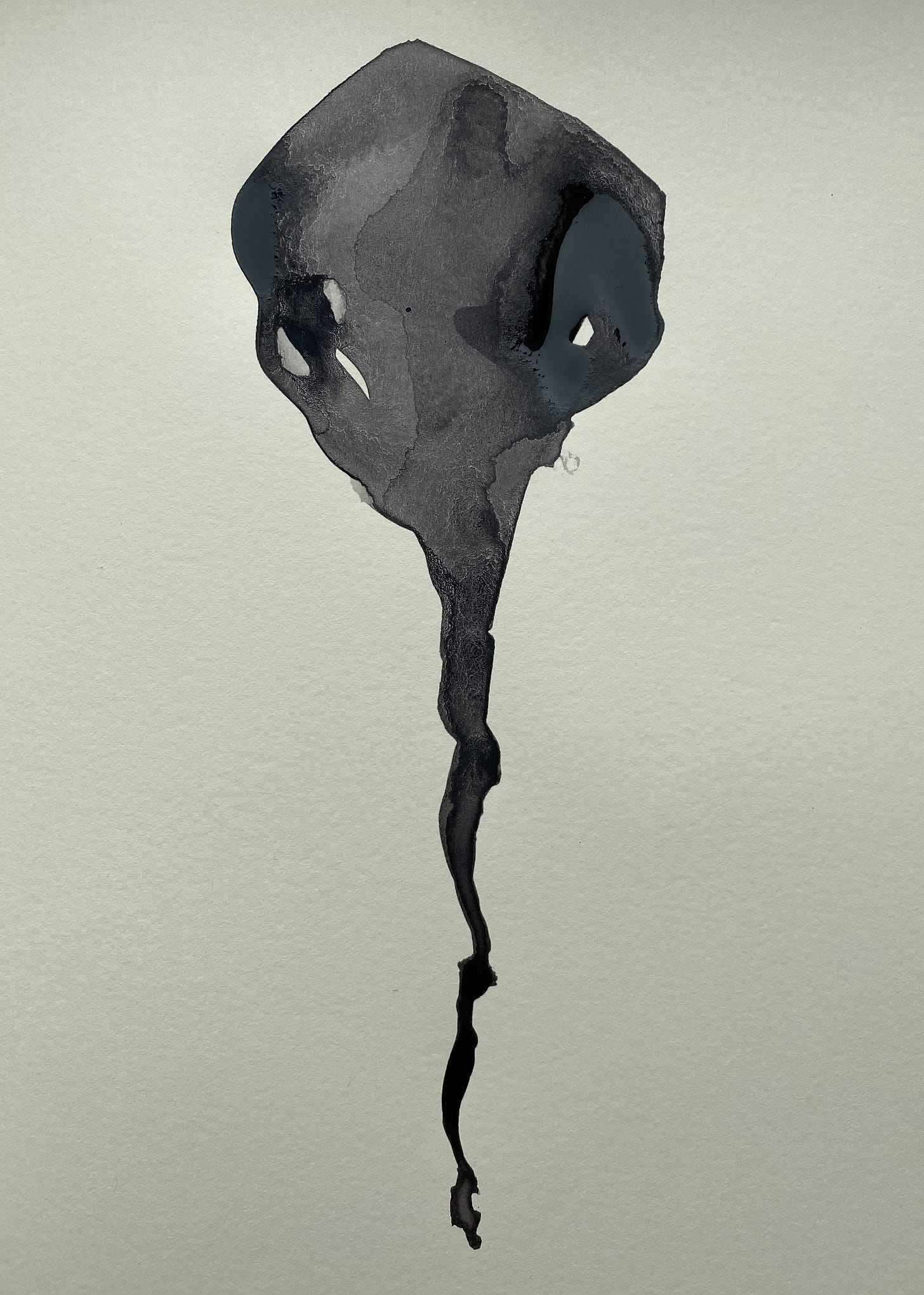
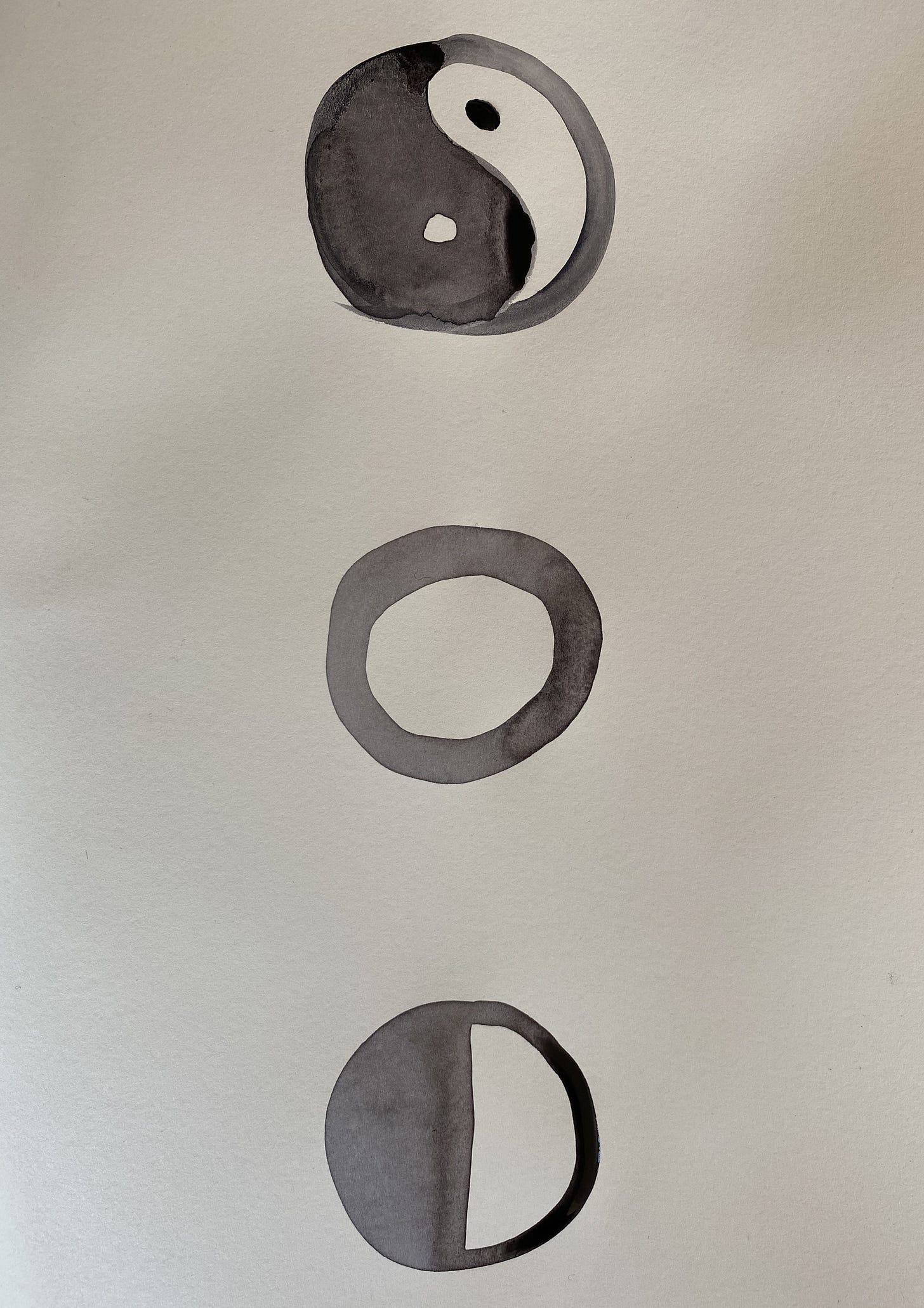
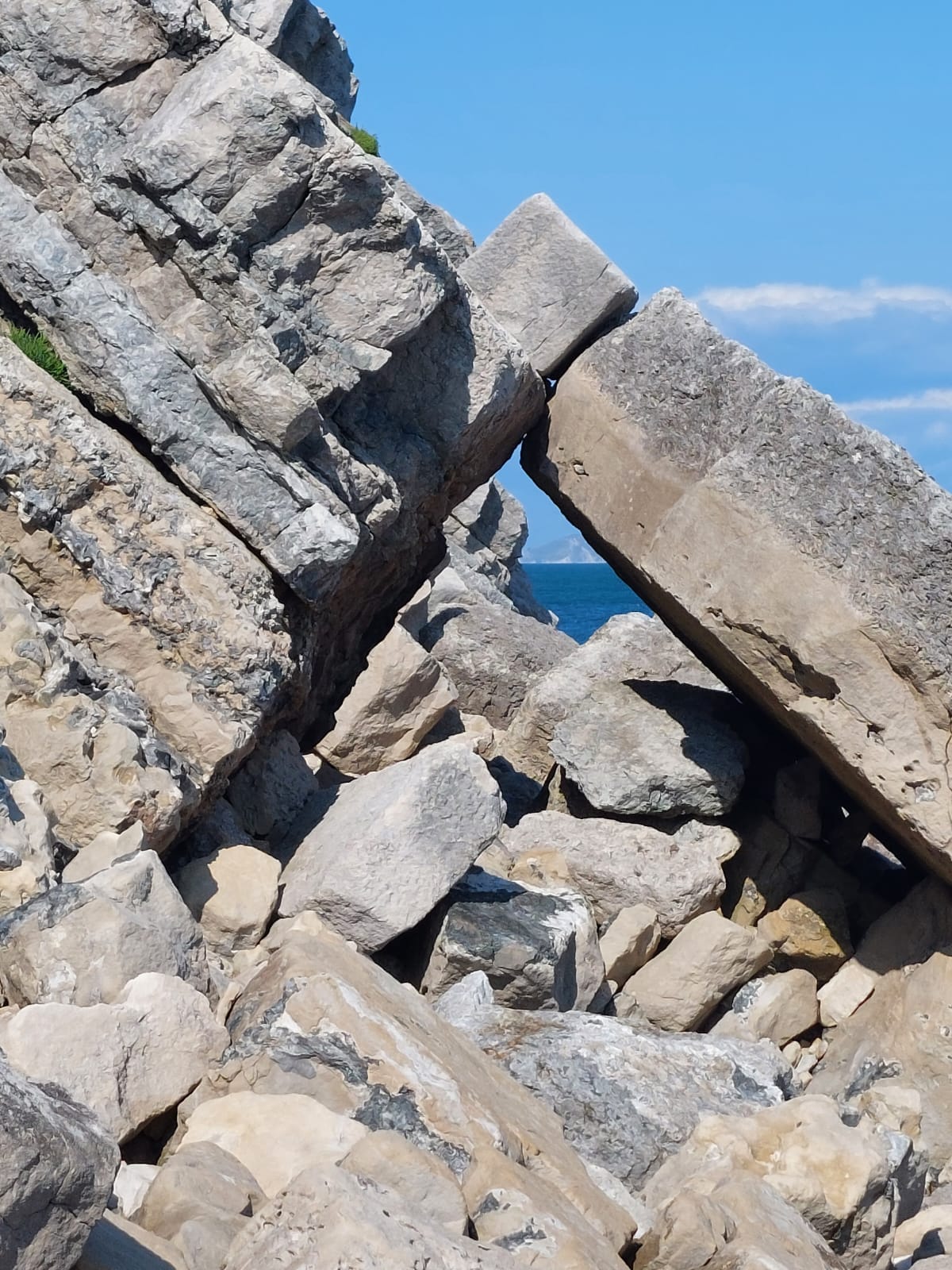
Thank you for your kind words, Caro. There's much here that I recognise from my own experience of the Oxfords of this world. To the extent that I may have escaped the fate you describe, I remain in puzzled gratitude at this being so. Perhaps it was Alan Garner's The Voice That Thunders that accompanied me like a talisman through three years in literal Oxford and kept me intact. (The half-complete initiation image I first wrote up in Pockets, the story I wrote for Alan's 80th birthday, though if memory serves me right then it was Mary Harrington who first framed what had been done to us by our education in these terms, during one of the many long conversations we had in our fallow post-Oxford years.)
I came to this, this morning, straight from Andrew's latest post at Bog-down and Aster, where his words about "the work of Both/And-ing" sing across to your drawings here and your comments about other ways of being with duality. https://bogdownandaster.substack.com/p/ayelet-ha-shahar?utm_source=%2Finbox&utm_medium=reader2
I don't hang around with, or even meet, many Oxford types; but I think I know the gap you mean. I'm not convinced it's particularly Western or modern, though, except insofar as it's especially celebrated here and now.
I think there's a perfectly good, although slightly too broad, English word for it: ambition. It usually masquerades as a drive to make a difference, or contribute, or DO GOOD; but it's all pretty much the same thing: an assumption that they should matter on some scale other than to their family and friends, and then a need to somehow actually matter on that scale. I think it's endemic to any hierarchical society. I'm sure the Anglo-Saxon churches were led by Oxford types (Wilfred comes to mind).
Of course that sort of ambition is doomed to failure. Even Plato, Laozi, and Caesar were motes of dust in the long history of our species and our species is just another passing phase of Earth's life. They don't matter, and even those that 'just' want to matter to their own society are fools. No-one ever can matter except to their family and friends. We're animals, and that's not how mattering works for us.
Poor sods.